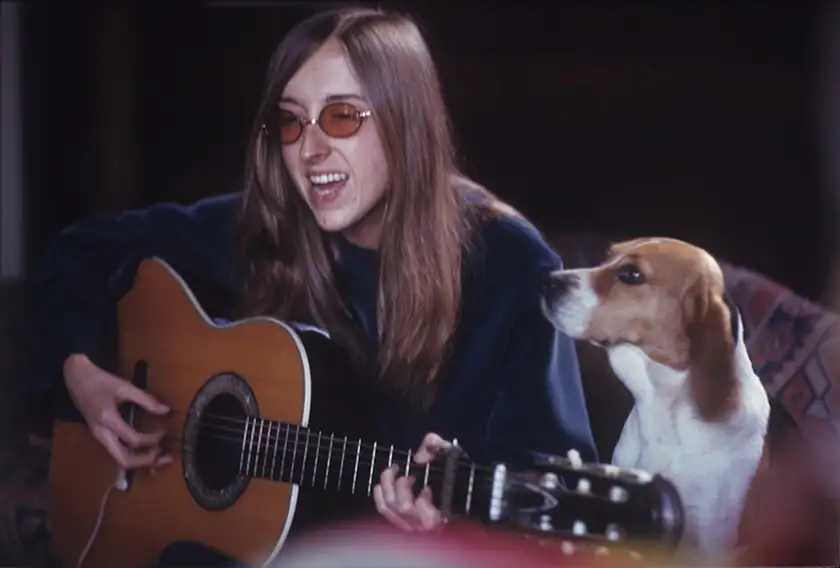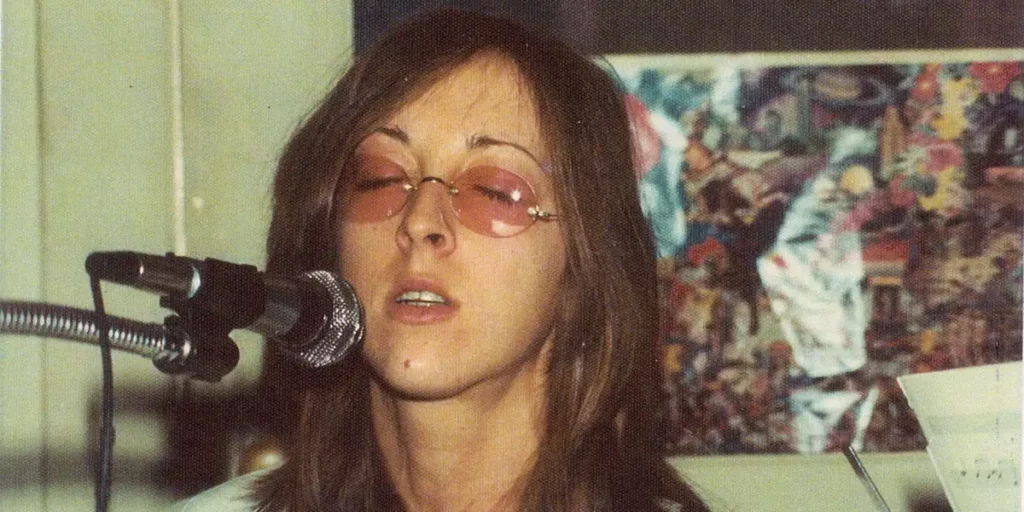In Lost Angel: The Genius of Judee Sill, Brian Lindstrom and Andy Brown deliver the definitive documentary about the forgotten musical icon.
It’s no secret that musical genius often goes hand in hand with troubles. The phenomenon has been endlessly covered in fictional and real media, from the recent short by Billie Melissa Rogan called I Love You, Guys, about a troubled female vocalist, to the upcoming Amy Winehouse biopic Back to Black. Lost Angel: The Genius of Judee Sill is the latest documentary that explores the intensely tragic backstory of a brilliant but sadly underappreciated musician. Courtesy of filmmakers Andy Brown and Brian Lindstrom, the film is a moving tribute to Judee Sill, a genre-busting female vocalist from the 60s and 70s with a haunting and unique voice and an extraordinary gift for songwriting and music writing.
Lost Angel: Judee Sill’s Troubled Genius and Enduring Legacy
To understand the power of Judee’s music, you have to understand the woman herself. Lost Angel: The Genius of Judee Sill takes us on an extensive journey through who she was, and how that is reflected in her sound. Judee Sill was active in the Los Angeles music scene during the same time that included JD Souther, Graham Nash, Linda Ronstadt, Tommy Peltier, The Turtles, Joni Mitchell, and Jackson Browne, just to name a few. She was one of the first artists signed by David Geffen’s Asylum Records. Her sound was ethereal, and she often played with religious themes and tradition in her compositions. She was even known for her fondness of Bach.
Before she dedicated herself to music, complete with a treble clef tattoo, her time on Earth was filled with challenges and the worst sort of heartbreaking issues. She had a troubled home life after the death of her father, and then a step-father who had a habit of making himself too familiar to her, along with a mom who was an alcoholic. To escape, she turned to crime, doing a tour as a teenage bank robber, and also time with the needle with hard drugs. There were terrible relationships, too, and prostitution, and check forging to fund her at one time $150 a day drug habit. Her brother’s sudden death while she was incarcerated hit her hard, and the rebellious Sill made a change.
With her first single, “Jesus Was a Cross Maker,” she found success and was at the top of the musical game for a period of time. But because she didn’t quite fit in a genre box, she wasn’t exactly a continuing commercial hit, and that was hard for her to accept. Her second album, “Heart Food,” was well-reviewed but didn’t sell. There were personality clashes, too, for Sill, with Geffen and more. She was against rock fans, finding them without respect for music.

And in addition to these issues, Sill still had setbacks with her sobriety due to some terrible debilitating accidents that left her in pain. She did the medication dance with the doctors, who wouldn’t prescribe her strong medication because of her addiction history, even though half of her body was literally in a cast. So, Sill slipped back into old habits to lessen the pain. The end of her life was bookended by trouble, too. Her OD was classified as a suicide, although those close to her believe it wasn’t intentional and was just an accident by Sill.
After Sill died, it became tough to get a hold of her music. But it seems like when people did, it really spoke to them. Today, the best way to describe her is a cult favorite, although she counts many big names as her fans, including singer-songwriters Shawn Colvin and Andy Partridge, and director Greta Gerwig.
A Genre-Defying Artist Finally Gets Her Due in Lost Angel: The Genius of Judee Sill
The documentary by Lindstrom and Brown stands in contrast to what has been Sill’s mythos so far. If you were just to read the few stories about her, or just look at the statement of facts of her situation, it wouldn’t be difficult to see the sadness. But what Lost Angel: The Genius of Judee Sill does is give the artist her dignity by telling her story in as well-rounded a way as possible. We see all the sadness, but we see all the joy too.
Sill’s story is told in her own words and voice, when possible, thanks to an unearthed and comprehensive audio interview from the LA Free Press. There is an impressive roster of interviews that make up the talking-head style chats about Sill, too. Their first-person recollections of Sill and the scene from that time in music history are invaluable.
But what really brings the documentary to life, and is a complete coup by the filmmakers, are Sill’s journals. The duo spent nearly a decade trying to acquire them from a relative, and because they were persistent and eventually succeeded in getting the journals, the documentary gives us a much richer picture of Sill’s inner world. A voice actress soulfully brings Sill’s journal writings to life to narrate the documentary at times. The filmmakers go a step further, animating her words and drawings to help tell her story. Because the filmmakers delve into her personal journals with the documentary, we are granted intimate access to her thoughts during this downward re-spiral into darkness. We are with her as she pleads with higher powers, and it gives us as the audience a profound connection, besides music, to the artist. And even when healed, Sill never shook the addictions. We are with her and witness to her with these journals that the film spotlights.
The combination of the lost interview, voice acting, animated journals, and talking head interviews paints a comprehensive picture of Judee Sill. Though the run time is long, the subject justifies it. Lost Angel: The Genius of Judee Sill is the definitive and long overdue biographical work on the musician. Together, they create a fearless and transcendent look at her. The documentary unquestionably shows the depth of her talent.
In some way, Lost Angel: The Genius of Judee Sill is a video obituary or living memorial to Judee Sill. Although she was the subject of a Rolling Stone cover story during her life, that particular achievement that was synonymous with having” made it,” her death was largely overlooked and unnoted except for the very few close friends who made it to her funeral and memorial in 1979. It wasn’t until 2020 that her passing would be noted in the New York Times with an obituary aptly titled “Overlooked No More.” But as that was in February of that year, the world quickly devolved into other matters of life and death with the pandemic, and Judee Sill again faded into near oblivion.
Because of this confluence of reasons, Judee Sill and her music are like the deepest of deep cuts in the female “folk” scene, even for those in the music business and or the most dedicated fans. Lost Angel: The Genius of Judee Sill, although fraught with a necessary undercurrent of sadness and tragedy, does an excellent job of telling her story, largely in her own words. In addition to the personal and historical value we absorb through this work, it is also of great musical and artistic value. Lost Angel: The Genius of Judee Sill shows us how her music was “life-giving,” as one interview aptly put it. With it, Judee Sill’s legacy ascends out of its karmic limbo to its rightful place.
Lost Angel: The Genius of Judee Sill will open in theaters, on digital and on demand in the US and Canada on April 12, 2024.
Loud and Clear Reviews has an affiliate partnership with Apple, so we receive a share of the revenue from your purchase or streaming of the films when you click on the button on this page. This won’t affect how much you pay for them and helps us keep the site free for everyone.

